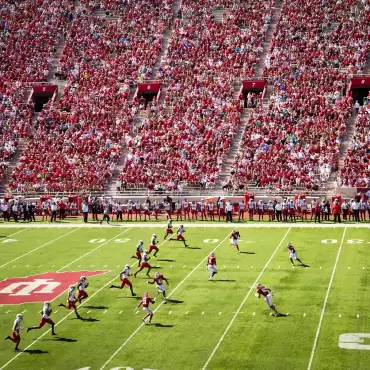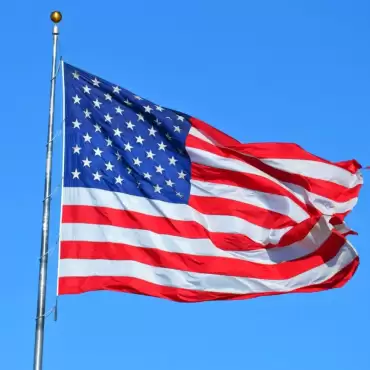Originally scheduled to take place at 2pm local time (5pm GMT) on 6 December, Brazil's senate vote has now been rescheduled until Tuesday 12 December.
Prospects are now bleak that it will be approved this year.
While the proposal of Brazil’s gambling regulation remained on the agenda, senators were unable to vote on the bill due to the lack of quorum.
As the minimum number of senators needed to vote was not met, it was not possible for the vote to go ahead as approval of the bill risks being compromised.
Factors behind the delay
When Brazil’s Economic Affairs Commission (CAE) approved Bill 3,626 two weeks ago, the industry thought the senate plenary vote would follow shortly after. But this has not been the case.
The senate plenary’s vote was scheduled for 29 November – but the vote was delayed until December after more than 100 amendments were added to the bill.
The major reason behind the delay is that 15 key senators were attending the United Nations Climate Summit (COP28) in the United Arab Emirates. The summit continues until early next week.
The vote requires a qualified quorum, as the proposal does not have consensus in the senate. This means that the absence of senators in favour of the proposal risks compromising the approval of the bill.
What effect will this have on Brazil regulation?
If this vote is also delayed, the ramifications could reach much further. The principal issue with the postponement is that there will only be two weeks left before parliamentary recess. This begins on 23 December and will continue until 2 February 2024.
For the resources necessary for the bill to be included in the 2024 budget, it would have to be approved in 2023.
While the vote is provisionally scheduled for next Tuesday, this would leave one week and two days for Brazil’s chamber of deputies to approve the amendments. These were originally presented by Senator Angelo Coronel last week.
If the senate approves the proposal on 12 December, the house of representatives will only have the last week of the legislative year to approve the changes.
What does the industry think?
Luiz Felipe Maia, founding partner of Brazilian law firm Maia Yoshiyasu Advogados, remains confident that regulation is not far away.
“I sincerely believe we are moving closer to regulation,” says Maia. “In fact, I believe we are very close to the approval of the bill. One critical element that was absent in the previous attempts: the weight of the government in favour of its approval.”
Maia says that players will benefit the most from the regulation, even compared to the assumed benefits for the government and sports. As for the delays, he believes it’s just part of the process.
“COP28 resulted in several absences in the senate,” he continues. “The government and those in favour of the bill are not willing to take risks in the vote. Those against it are also trying to block it, aiming to exclude online games.
“It is definitely frustrating, but it is part of the democratic process.”
Will we see betting regulated in 2023?
The Betting Bill is arguably a crucial component of Brazil’s 2024 budget. Neil Montgomery, founder and managing partner of Brazilian law firm Montgomery & Associados, agrees.
“The federal government is counting on the Betting Bill to contribute to the 2024 budget. In addition to the licence fee – set at BRL30m – the federal government has announced that it expects to collect BRL1.6bn in taxes,” he says.
Montgomery is however sceptical whether this can be achieved before congress goes into recess after 22 December.
“Given that there is very little time before congress goes into recess – which starts on 23 December and ends on 1 February 2024 – I am sceptical that there will be sufficient time to approve the same this year. This especially since the Betting Bill will have to return to the house of representatives,” he added.
The issue now is whether the Betting Bill could possibly return to the house of representatives within 10 days of next weeks vote. This is due to the 100 amendments that were made to the bill by senators on 29 November.
Following approval from the house of representatives, it will also need to be reviewed and approved by the office of President Lula.
Where do we currently stand on Brazil regulation?
“While I am an eternal optimist and believe that we have never been closer to Brazil’s regulation, the chances of the Betting Bill being approved and enacted before ICE London 2024 are looking grim,” says Montgomery.
However, there are plenty of benefits on the table if the text in the bill stays as last presented.
“The federal government wins because it will finally be in a position to collect taxes and licence fees, and have such additional revenues contributed to the budget,” says Montgomery.
The regulation of the market will also permit the creation of a large number of formal jobs. Foreign operators, which represent the majority, will have to establish a physical presence in Brazil and bring foreign direct investment into the country.
“The only downside in this regard, is the 20% Brazilian ownership, which I hope is not ultimately approved. They will also have to start paying local taxes, but at least the reduction in the GGR tax from 18% to 12% is positive,” Montgomery continued.
“Players will also benefit from the reduced winnings income tax. The physical presence of operators will also be beneficial. This because they will have a local “door to knock” when problems arise.
“This will certainly increase litigation in Brazil which, especially from a consumer protection perspective, can be a nightmare for suppliers.”
Reading between the lines on Brazil regulation
In Montgomery’s view, there continues to be fierce opposition for approval of the bill. He believes this is the key reason for the delay.
“Lately, the opposition has focused more on the inclusion of igaming in the Betting Bill. It was originally limited to fixed-odds sports betting. That being said, I am not surprised, but disappointed that yet again there is a concrete chance of attending ICE next year without any concrete progress coming from Brazil.”
There has previously been opposition to the inclusion of igaming. Its addition was originally approved by Brazil’s Economic Council (the CAE) last month as part of Bill 3,626.
Bill 3,636 went through a number of transformations to get to its current form. In July this year, Brazil’s president, Luiz Inácio Lula da Silva signed Provisional Measure (PM) No 1,182 into law.
This implemented sports betting measures outlined in Law No 13,756 from 2018, with amendments to the tax rate and marketing restrictions.
This approval also amended one of the most controversial aspects of the bill – the tax rate. This was initially set at 18%, much to the ire of the industry which had an overwhelmingly negative reaction.





